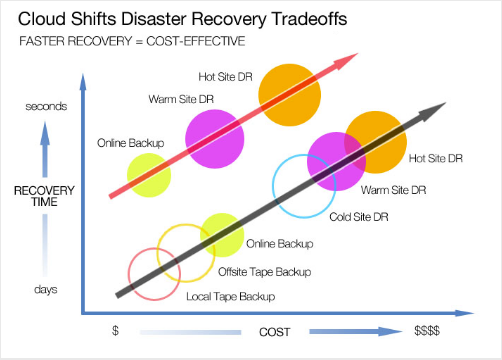What are the biggest advantages of hosting your app in the cloud?
Cloud is enjoying a massive adoption rate is software applications.
As per a report by RightScale, enterprises run 79% of their workloads in the cloud, with 41% in the public cloud and 38% in the private cloud.
1. Low costs, high ROI
Hosting your app in the cloud removes the extraneous burden of investing in dedicated servers, security systems, backup and storage hardware etc. This reduces the overall setup cost of the application. Configuring an app in the cloud is way easier and reduces the overhead on IT operations department of any organization. It also minimizes the cost of deploying mission-critical applications and maintaining them.
The overall ROI generated by moving to the cloud is very high. Other than these, cloud lowers your investment by lowering:
- Workforce cost;
- Power and utilization cost;
- Upfront capital investments.
2. Enhanced reliability
The cloud is a reliable platform as the deployed app can be rolled back any time to a previous snapshot or a specific version. This way a disaster can be properly addressed with a robust procedure, thus reducing the time and the cost of setting up a duplicate data centre for recovery. Due to faster recovery, cloud disaster management is a very cost effective process.

3. Improved teamwork
Since your teams can access, share and edit files on the cloud, it increases the collaborative effort and helps teams make informed decisions. Every team member is aware of the latest updates performed on the applications in a cloud workflow and can share information real time. This can drastically reduce the time of the software development cycle.
4. Efficient data management
Most of the times, different departments of an organization work together on an application that is developed and maintained globally. It generally ends up creating conflicts between different types of data. Cloud plays a major role in maintaining the consistency and integrity of the app data shared as it keeps centralized data that is available to all users.
5. Increased mobility
Mobility now holds a strategical importance in our lifestyle. It has become essential to strategize a digital workplace by taking the path of mobility.
It is deep-rooted in every business architecture and a top-most priority of every enterprise. And this shift towards mobile and cloud is not going to slow down anytime soon. If your app is hosted in the cloud it can be accessed anywhere online and not at a specific physical location. This removes device specific restriction on app usage as well.
6. Advanced security
Gone are the times when the cloud was considered to be less secure. Nowadays, the cloud offers extensive cyber security measures to curb the misuse of application data effectively. Enterprise cloud providers have developed a robust cloud architecture which outperforms all other security measures.
When you host your app, you also save the cost of hiring security experts as cloud services now come up with integrated support services to assist and activate tools that are essential in carrying out security audits, defence against DDOS, ransomware and a large array of attacks that may harm your app. So, when you decide to move to the cloud, you should consider these when choosing a cloud service provider.
7. Scale on demand
As in when the market experiences more competition, you might need to scale your apps to suit the growing or fluctuating demands. You can easily opt for an increased or decreased cloud capacity as per your business requirement thus giving you more flexibility for operational productivity. On the other hand, legacy based systems made this task very tedious and costly.
8. Provides a testing platform
It is easier to test your app functionality when in the cloud. For startups, it is an easier way to validate their app acceptance and get an idea if their target audience would be interested in their app or not. Testing your app in the cloud can be helpful in the following ways:
- You can test anytime.
- It facilitates agile development.
- It is a lot easier to test with more scenarios.
- You can test on a variety of mobile devices.
9. Better insights
The 2016 IDG Enterprise Cloud Research estimated that within the next 3 years over 22% of the organizations will adopt the cloud for data analytics and research.
Cloud helps in consolidating data from your app and various other resources to provide actionable insights on app performance and improvement.
Storing your app data to the cloud will help in generating tracking info and build customized reports to analyze app goals as well as increase app efficiency.
Conclusion
If you plan to take your app to the cloud, you should consider the following:
- What are its performance metrics – Uptime, Downtime etc.
- Do you need a private or a public cloud?
- How flexible is the cloud service provider?
It is no denying the fact that hosting your app in the cloud adds strategic value to your business project in several ways. This will directly impact your apps productivity and efficiency.
Essentially your app will be market ready and enables your organization to focus on application development process.


